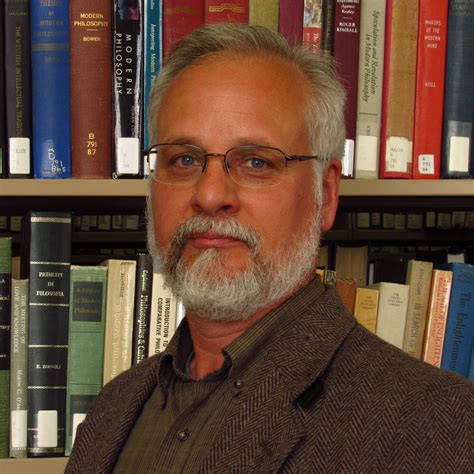A Quote by John Carroll
Stirner and Nietzsche [adopt] a mode of thinking which is personal, introspective, and which while often operating on alternative systems of belief and action does so only as a means of better grasping one dominant goal the patterns of individual redemption. Stirner and Nietzsche are not primarily interested in critique as such. ... Their work is too egoistically compelled for them ever to employ the external world as more than the repository for a series of projections of their own.
Quote Topics
Action
Adopt
Alternative
Belief
Belief And Action
Better
Compelled
Critique
Does
Dominant
Employ
Ever
External
Goal
Grasping
Individual
Interested
Introspective
Means
Mode
More
Often
Only
Operating
Own
Patterns
Personal
Primarily
Redemption
Repository
Series
Systems
Than
Them
Thinking
Too
Which
While
Work
World
Related Quotes
Life is more than thought: what a man feels, and what his senses awaken in him, are more indispensable to his life's fullness than subsequent reflection on their significance. Both Stirner and Nietzsche have elaborated Faust's opening speech in which he bemoans his wasted years in academia: this speech is Goethe's own impeachment of Kant and Hegel . Philosophy proceeds always under the risk of making a fetish of thinking.
I rather shared Nietzsche's conception of the kind of individual that an ideal education should be cultivating. 'Authenticity' is not Nietzsche's term, but as used by some existentialists, it nicely captures what Nietzsche admired - the resolve of an individual person to forge his or her own 'table of values', to be emancipated from strait-jacketing conventions, traditions, and ideologies. As embodied in the 'Overman', authenticity is the antidote to 'bad' nihilism.
What stands most explicitly as critique in Nietzsche's late work in not a development from earlier interests but a return to two problems of enduring personal involvement for him, those of Wagner and of Christianity. Der Antichrist , to take one case, is not a response to a resuscitating public interest in Christian religion; it is primarily a renewed attempt to resolve for himself the question of piety.
In the helter-skelter of this book, I didn't develop my views as theory. In fact, I even believe that efforts of that kind are tainted with ponderousness. Nietzsche wrote "with his blood," and criticizing, or, better, experiencing him means pouring out one's lifeblood. It was only with my life that I wrote the Nietzsche book that I had planned.
I'm talking of the idea, basically very widespread in America, that the less government the better, which is obviously being used to the advantage of the big corporations, but none-the-less has very radical implications. The idea of a people that exercises a great deal of federalist or confederalist control, the ideal of a grass-roots type of democracy, the idea of the freedom of the individual which is not to get lost in the mazes of anarcho-egotism à la Stirner, or for that matter right-wing libertarianism.



































